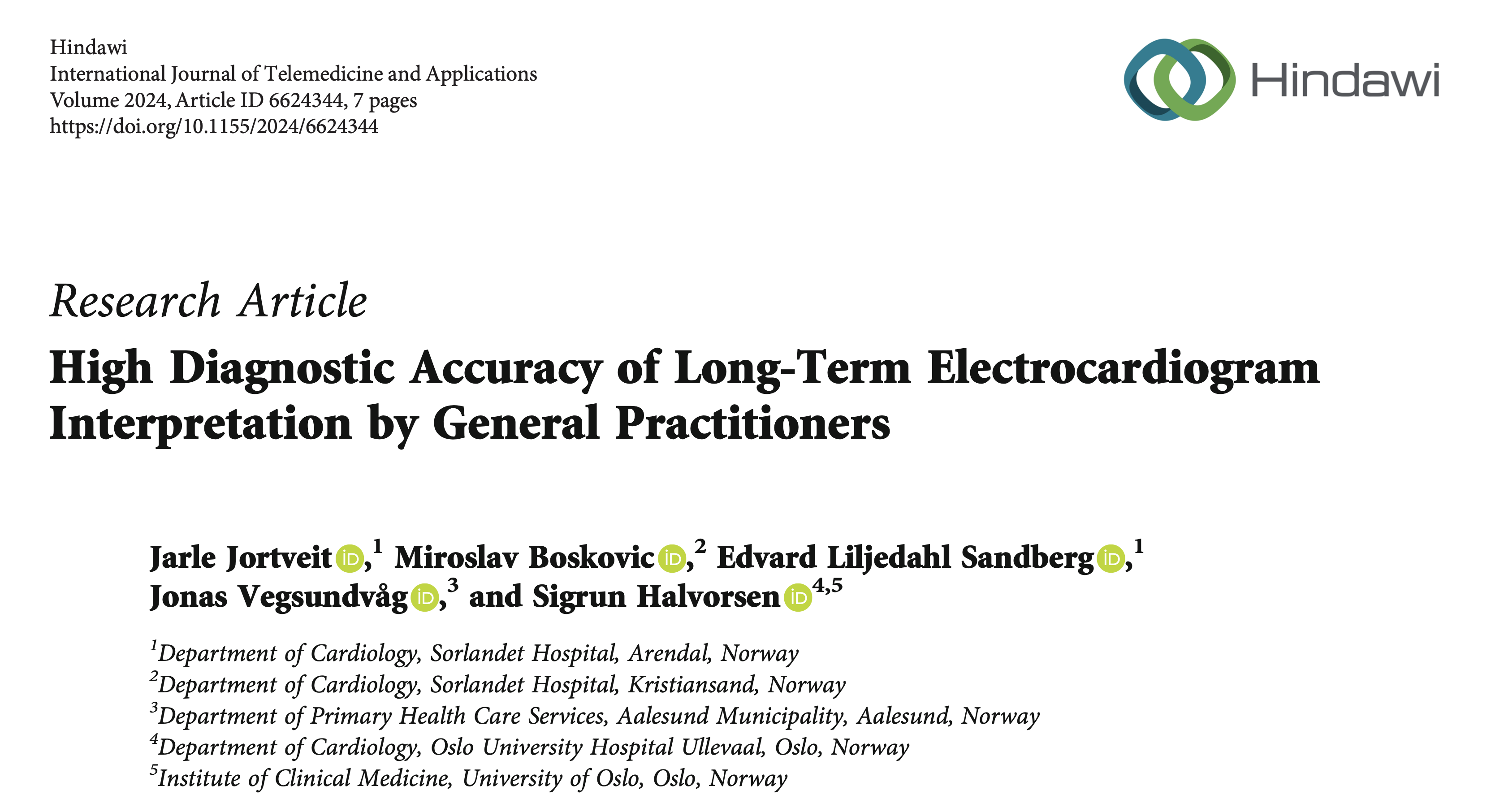
Traditional long-term ECG monitoring systems have primarily been used by cardiologist. New remote and wearable easy-to-use devices have led to increased use of ECG recordings also outside cardiology clinics. The aims of this study were to assess the feasibility and diagnostic accuracy of interpretation of the one-lead ECG recordings from a patch ECG device (ECG247 Smart Heart Sensor system) by general practitioners (GP).
Norwegian GPs were invited to digitally assess 10 long-term ECG recordings with different arrhythmias performed by the ECG247 Smart Heart Sensor system. For all ECG examinations, the presence/absence of different arrhythmias was registered. Results. A total of 40 GPs accepted the invitation and assessed all the 10 long-term ECG recordings. All the tests were assessed as interpretable by all the GPs. Arrhythmias (atrial fibrillation/flutter, supraventricular tachycardia, and ventricular tachycardia) were correctly identified in most cases, with sensitivity of 98% (95% CI 95-99%), specificity of 75% (95% CI 68-82%), and diagnostic accuracy of 89% (85-92%). Incorrect automatic system algorithm interpretations were rarely corrected by the GPs.
Conclusion: GPs interpreted one-lead recordings by the ECG247 Smart Heart Sensor system with high diagnostic accuracy for common arrhythmias. However, in cases with rare arrhythmias, we recommend consulting a cardiologist to confirm the diagnosis before treatment is initiated.




